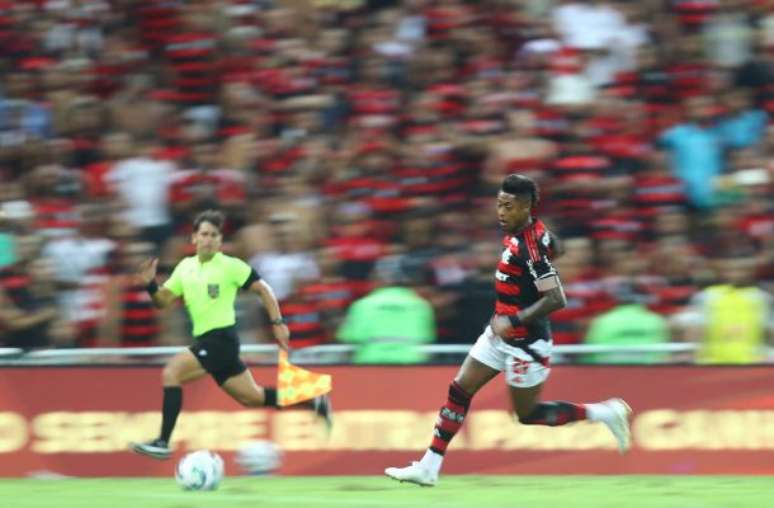After seeing his detractors condemned in Spain, the player Vinícius Jr. declared without any doubt that he is not a victim of racism. More than playing well, young blacks must follow this example of combativeness: “I am not a victim of racism, I am a victim of racists.”
Vinícius Jr.’s sentence went viral on June 10 and became a sort of slogan to commemorate the conviction, unprecedented in Spain, of three Valencia fans, who made openly racist insults against the player in May 2023. While racism is not a crime in Spain, the decision highlights a position that should be celebrated on a global scale.
But I confess that here, what continues to attract my attention, is the strength and awareness of Vini Jr, one of the greatest footballers of our time (and perhaps of all time), whose genius on the pitch has just been recognized in the election of the best player of the Champions League 2023/2024.
On the one hand, Vini Jr has become the expected exception in racist Brazil: a black boy, from humble origins, who is a football ace. How many stories like these do we know here in Brazil? How many other poor black kids have found in football the main, if not the only, way to be recognized and grow socially and economically?
And how many other boys – and, more recently, girls – saw in these stories the only possibility to dream, even if that dream did not come true? After all, for every Vini Jr., we have thousands of young people who have dreamed and sought to be in that place.
It turns out that yes, Vinicius Júnior is unique, but he doesn’t walk alone. And his greatest enchantment lies not in the fact that he reached the top of world football, but in the path that brought him there. A stance that is not unprecedented, but profoundly courageous. Courage which, we know, has a long history.
Racism has not bowed to the genius of the stars
It is worth remembering that 101 years ago Vasco da Gama broke the openly racist protocols of Brazilian football, and entered the field with a predominantly black team: the Camisas Negras. Despite all the fans against it (it seems that those of Flamengo, Botafogo and Fluminense united to drain the team), the Camisas Negras won the 1923 Rio championship and announced changes that would transform not only Brazilian football, but the country same.
Suffice it to remember that, four generations ago, black kids couldn’t even dream of becoming footballers, and today this must be the dream most dreamed of by these same kids (and perhaps the one most likely to come true).
In 100 years, Brazil and the world have had to bow to the genius of football played by black boys. That doesn’t mean racism has decreased in the sport.
Not even King Pelé was immune to the barriers posed by racism, having been rejected by some clubs because he was a young black man playing football. And as our football got bigger and blacker, racism found other ways to play its tricks.
The strategies created by black players were different and say a lot about the time they lived in. Some preferred to “demonstrate their genius in the field” and silence their detractors. Others fell in love with the story of racial democracy and preferred not to take sides (or take a long time to understand or publicly admit themselves as black players).
But we also had those who, in addition to hitting the ball like few others, decided to denounce racism. Grafite, Marinho and Aranha are some names of important black players who have decided to face racism as it is: a crime. Which must be taken as such, going through all applicable legal procedures.
It is this “school” that Vinicius Júnior is part of. And this is, without a doubt, one of his greatest qualities.
I hope that more than playing as much as Vini Jr., black boys and girls in Brazil can and will also become the executioners of racists. Because this is the kind of executioner Brazil needs.
______________________________
Master and doctorate in Social History at USP, Ynaê Lopes dos Santos is professor of History of the Americas at UFF. She is the author of the books Além da Senzala. Slave Quarter Agreements in Rio de Janeiro (Hucitec 2010), History of Africa and Afro-Descendant Brazil (Pallas, 2017), Juliano Moreira: Black Doctor in the Founding of Psychiatry in Brazil (EDUFF, 2020), and Brazilian Racism: a story of the country’s formation (Todavia, 2022), and also responsible for the Instagram profile @nossos_passos_vem_de_longe.
The text reflects the opinion of the author, not necessarily that of DW.
Source: Terra
Rose James is a Gossipify movie and series reviewer known for her in-depth analysis and unique perspective on the latest releases. With a background in film studies, she provides engaging and informative reviews, and keeps readers up to date with industry trends and emerging talents.







